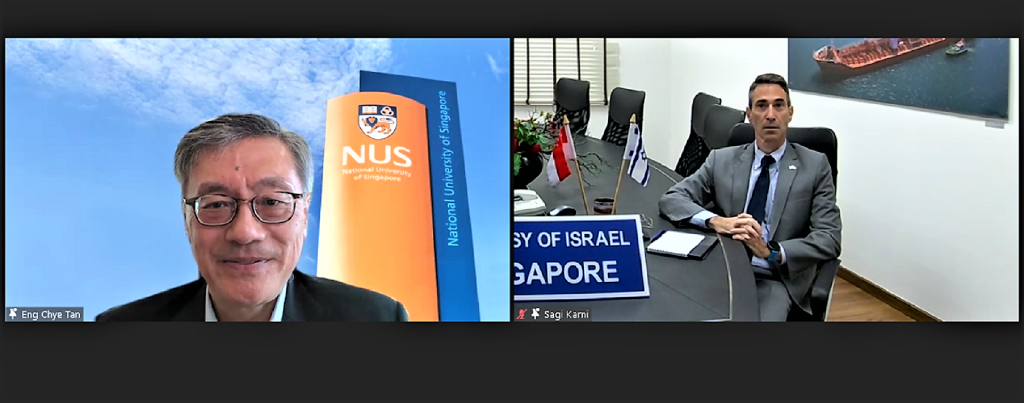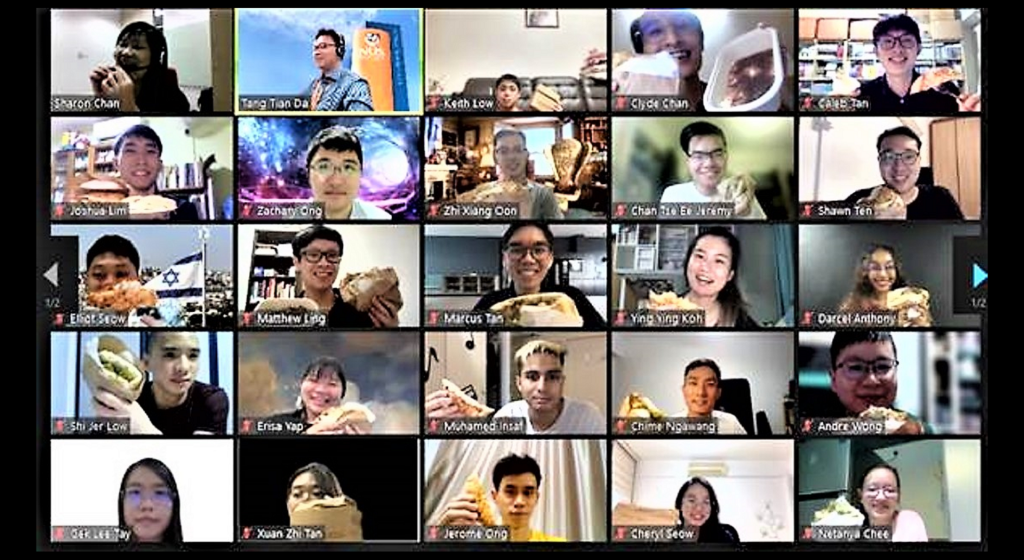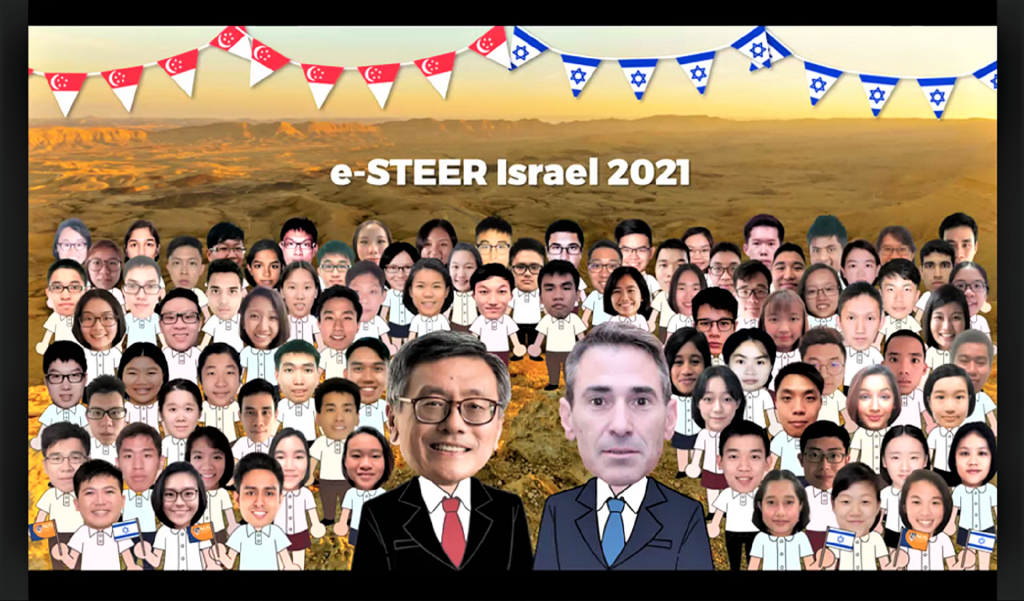Unpacking Israel, the Start-up Nation
September 2, 2021
IN BRIEF | 4 min read
-
The success of eSTEER Israel has paved the way for other virtual immersion programmes to prepare students for the resumption of the University’s global initiatives. Since the long-standing programme commenced in 2010, over 1,000 students have participated in STEER’s thematic programmes for learning about emerging regions.

While the global pandemic and travel restrictions may have kept NUS students in Singapore, the University continues to provide a rich overseas experience through a virtual iteration of the NUS Study Trips for Engagement and EnRichment (STEER) programme.
Themed ‘Unpacking the Start-up Nation: Society, Heritage, Technology, Innovation, Entrepreneurship’, the eSTEER Israel programme immersed more than 80 undergraduates in the diverse socio-political, cultural and economic environment of the country.
Organised by NUS Overseas Colleges (NOC) and the Global Relations Office (GRO), the three-day programme comprised a series of interactive webinars and experiential virtual activities which facilitated a specialised understanding of the fast-evolving ‘start-up nation’.
“This is the second run of the STEER Israel programme. The first one was held in June 2019, when a group of students visited Israel and Jordon on a two-week study trip. How we have adapted quickly to a virtual format, is a reflection that we must be adaptable to ride on opportunities,” said NUS President Professor Tan Eng Chye, as he addressed participants at the programme.
“As fellow small countries in this world striving to create and maintain relevance by being innovative, Singapore and Israel celebrated 50 years of diplomatic relations in 2019, and shared a long history of collaboration in education,” Prof Tan added.

“The three days that NUS has spent to host Israelis digitally, who each brought their unique opportunity to bring Israel to their students, is something that we thank and appreciate. We hope that we will be able to carry out further, similar exchanges for your students and faculty in the near future,” said Mr Sagi Karni, Ambassador of Israel to Singapore.
During the intensive programme, participants delved into learning the nation’s start-up success story, and discovered why venture capitalists and multinational companies are attracted to investments in Israel. Students also grasped the importance of ‘tikkun olam’, a concept in Judaism interpreted as the aspiration to behave and act constructively and beneficially, which has enabled Israel to deploy astute crisis management techniques for humanitarian missions.
Well-known for its global impact on research and innovation, technology and entrepreneurship, the small country of 9 million citizens exerts its political influence built on extensive international alliances, an advanced economy, and a strong military.
“The entire eSTEER programme was excellent. In particular, my favourite component was the panel discussion with veteran diplomats Ambassador Ron Prosor, Head of the Abba Eban Institute of International Diplomacy at the Interdisciplinary Center Herzliya, and Mr Bilahari Kausikan, Chairman of the NUS Middle East Institute,” shared Balram Vivasvat Sharma, a Year 3 NUS Engineering student.
“I enjoy frank political discussions, and I appreciated that the speakers analysed Israel's historical and contemporary political situation in an objective and rational manner,” noted Balram who is currently in Haifa, the third largest city in Israel, on a research attachment with Technion – the Israel Institute of Technology.
Other programme highlights included success stories from Israel-Singapore research and development collaborations, and an overview of technology and innovation trends in Israel. The ‘Start-up Nation Showcase’ which featured Mr Imri Goldberg, Vice-President of Research and Development at Flytrex, an Israeli drone start-up, and Mr Lior Rigler, Director of Sales and Business Development at Seakura, a seaweed company, shared valuable industry insights with students.
Through virtual tours of famous historical sites in Israel, attendees explored parts of the ancient walled city of Old Jerusalem, and immersed in the engaging history and diverse cultures of the land.
As part of the programme, students also received a home-delivered meal from the first Israeli restaurant in Singapore, Miznon, for an evening of indulgence in a vicarious, shared and simultaneous dining experience. While savouring Israeli street food, participants learned the stories behind these culinary delights which convey their rich heritage.

“It was memorable being able to indulge in Mediterranean cuisine from the comfort of my own home, while communing with the other participants and the organising team from GRO and NOC,” reflected Sim Tabitha Eurydise, a Year 3 NUS Arts and Social Sciences student.
“Overall, even though my interests remain in social sciences, eSTEER Israel gave me the opportunity to be exposed to other areas of study beyond my current knowledge,” she said.

“In many ways, both Israel and Singapore are start-up nations – small countries that succeeded against immense odds, driven by the sheer determination of its people, and blessed with strong leadership during the formative years,” noted Ms Sharon Chan, Deputy Director at NOC.
“Hopefully our students were able to take away lessons from the Israeli presenters, and are inspired to consider the notion of entrepreneurship and look at their own life situation through fresh lenses,” Ms Chan said.
The success of eSTEER Israel has paved the way for other virtual immersion programmes to prepare students for the resumption of the University’s global initiatives. Since the long-standing programme commenced in 2010, over 1,000 students have participated in STEER’s thematic programmes for learning about emerging regions.
This story first appeared on NUSnews on 23 August 2021.

